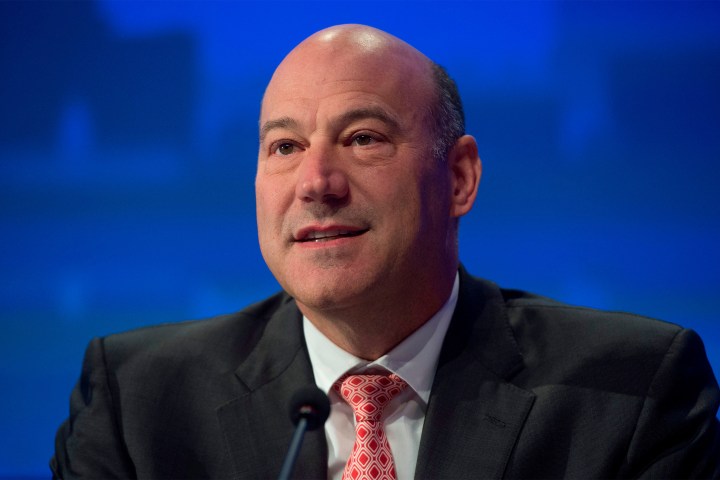
Former Trump adviser Gary Cohn on moving from COVID-19 rapid response to “sustainable recovery”
Former Trump adviser Gary Cohn on moving from COVID-19 rapid response to “sustainable recovery”

Putting out a fire is one job. Repairing the damage it caused is another, longer and much more challenging, one. When it comes to rebuilding an economy battered by COVID-19, the policies that helped us respond to the initial crisis aren’t necessarily the same ones that’ll help us in the long-run, says Gary Cohn, former director of the National Economic Council and chief economic advisor to President Donald Trump from 2017 to 2018.
Cohn’s message to lawmakers is to forget the partisan games in favor of swift action.
“This is not a partisan issue,” Cohn told “Marketplace Morning Report” host David Brancaccio in an interview. “Our citizens did a great job in removing themselves from the economy and flattening the curve. Now we owe it back to our citizens to help them return their lives to as much normalcy as we can.”
In order for that to happen, Cohn says we need to rethink many aspects of the Coronavirus Aid, Relief and Economic Security Act that made sense in the throes of the coronavirus pandemic, but could hamper sustained economic recovery going forward.
The expanded unemployment benefits authorized by the CARES Act in March might discourage workers who lost work due to the pandemic from returning to their jobs as businesses reopen, Cohn said.
“We have jobs that need to be filled, and the key to an economic recovery is getting people back to work. Now, I understand there are some real issues here and it’s not as simple as telling everyone to go back to work. We have children that are out of school. We don’t have daycare. We don’t have the normal support infrastructure that people would rely upon,” Cohn said. “But if we’re going to get ourselves moving forward, the most important thing we can do is getting people back in the normalcy of getting up and going to work and performing their services and getting paid for their service.”
While he acknowledged the challenges that would prevent many Americans from returning to work immediately, Cohn said that those who are “ready, willing and able to come back to work” should have to forfeit their unemployment benefits if they turn down a job offer.
“We have to return to the normal definition of unemployment,” Cohn said.
Another policy Cohn says we could do without is the payroll tax holiday President Trump has advocated for. For most employed Americans, such a holiday would mean a 7.6% bump to their paycheck — the amount typically withheld by the federal government.
But it wouldn’t help the tens of millions of Americans who have lost work during the pandemic.
“A payroll tax holiday is for those people already getting a paycheck,” Cohn said. “I want to use the tax system to create jobs, not to give those people that have a job a windfall.”
A sales tax reduction, on the other hand, would increase Americans’ purchasing power across the board.
Cohn pointed to a tariff holiday as another way to boost consumer spending.
“Remember, tariffs are a consumption tax,” Cohn said. “The consumer, when they show up and buy that imported good, they pay the price of the good plus the tariff. If we get rid of those tariffs, consumers have a lot more purchasing power. They would be able to buy more goods and services. And that would, in turn, put more people back to work. And ultimately, that’s how we’re going to drive real economic growth.”
Cohn is also proposing a safe harbor policy that would protect businesses from liability if employees or customers contract the virus, so long as employers make a reasonable effort to prevent transmission.
“Because, to the extent that [business owners] are going to have liability, businesses are going to open much, much slower. And even to the extent they open, they’re going to open in a much smaller capacity. So again, we’re not going to have the ability to bring back as many employees as we’d like to bring back if there were a safe harbor,” Cohn said. “And I’m not asking for anything radical. We don’t want to have a second wave of the disease. But we have to come up with something that’s rational.”
Click the audio player above to hear the full story.
There’s a lot happening in the world. Through it all, Marketplace is here for you.
You rely on Marketplace to break down the world’s events and tell you how it affects you in a fact-based, approachable way. We rely on your financial support to keep making that possible.
Your donation today powers the independent journalism that you rely on. For just $5/month, you can help sustain Marketplace so we can keep reporting on the things that matter to you.












